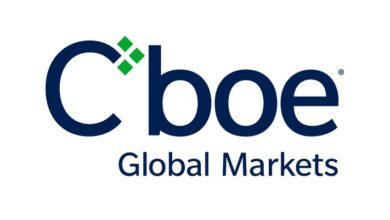UDPN’s First Pilot Deemed a Success, Seeks Collaborators in UAE
On October 23rd, Standard Chartered Bank, through its innovation arm SC Ventures in Singapore, and Deutsche Bank in Germany successfully completed the first Universal Digital Payments Network (UDPN) proof-of-concept (PoC). This landmark accomplishment involved the real-time on-chain transfer and swap of USDC and EURS stablecoins, marking a significant step in advancing the capabilities of cross-border payments.
Unlock Blockchain recently conducted an interview with Steffen Schacher, the UDPN Lead at GFT Tech Singapore, to delve into the details of this groundbreaking transaction and the broader implications of UDPN.
Collaborative Endeavors for Success
UDPN, built on Distributed Ledger Technology (DLT), serves as a cutting-edge interoperable payments infrastructure for regulated digital currencies, emphasizing cost efficiency and transparency in global transactions. Developed over the past two years with contributions from GFT, Red Date Technology, and prominent financial service providers, the UDPN Alliance is actively engaged in 12 PoCs with global banks, technology firms, and payment service providers, enabling the exploration of diverse use cases and scenarios.
Steffen highlighted the collaborative efforts involved in the successful completion of the first PoC use case; Digital Currency Transfer and Swap. “We envision a future where UDPN accommodates various CBDCs, building on the foundation laid with stablecoins,” Steffen emphasized. With a portfolio of 12 supported use cases, UDPN’s recent milestone represents a significant step forward in its operational scope and impact.
UDPN’s Universality and Adaptability
Elaborating on the choice of USDC for the PoC, Steffen clarified UDPN’s overarching vision as a universal network capable of seamlessly integrating various blockchain technologies. “UDPN’s objective is to foster a cohesive environment for different digital currencies, regardless of the blockchain technology they are built on,” he explained. This emphasis on flexibility positions UDPN as a versatile platform capable of accommodating diverse digital currency systems, including both private and public chains.
Insights into UDPN’s Infrastructure
The Universal Digital Payment Network (UDPN) aims to facilitate cross-border transactions of Central Bank Digital Currencies (CBDCs) and stablecoins globally. The structure links business IT systems with both centralized and decentralized currency platforms, utilizing Hyperledger BESU as its core framework.
UDPN’s architecture includes a permissioned, decentralized network of on-chain Validator Nodes, along with off-chain Business and Transaction Nodes. Additionally, the on-chain Transaction Audit and Reporting (TAR) Nodes enable regulatory oversight of digital currency transactions.
Elaborating on the technical intricacies, Steffen described the integration of business nodes on one side and transaction nodes on the other side of UDPN. These nodes serve as crucial gateways, connecting existing IT infrastructure and diverse currency systems. Business nodes enable financial institutions and other businesses seeking to initiate transactions to seamlessly integrate with UDPN. Effectively serving as an API gateway, these nodes establish a crucial linkage between their existing IT infrastructure and UDPN. On the other side of UDPN, transaction nodes serve as bridges between UDPN and diverse currency systems. These transaction nodes are adaptable to a variety of technologies, accommodating CBDCs, regulated stablecoins, and other forms of digital currencies anticipated in the future, explained Steffen.
Steffen further emphasized that embrace inclusivity across private blockchains, permissioned blockchains, and open blockchains within their network. “Our system seamlessly integrates with off-chain solutions as well. For example, we have successfully collaborated with Giesecke+Devrient, a German company with a non-blockchain-based CBDC, integrating their system effectively into UDPN,” Steffen confirmed.

Differentiation from Existing Networks
Addressing comparisons to established networks like SWIFT, Steffen elucidated UDPN’s unique value proposition. “Our aim is not to replace existing systems but to provide an inclusive, decentralized platform for diverse stakeholders,” he stated. UDPN seeks to establish a global network, expanding beyond specific regions and incorporating diverse financial institutions and technology providers.”
“We aim to have amongst 24 alliance members, different financial institutions and different technology providers,” said Steffen. The Alliance will add to its eight founding members, growing gradually to 24 over the next two years, each running their own Validator Node. The additional 16 members will include a diverse representation of central banks, commercial banks and technology companies. Focusing initially on a handful of major regulated stablecoin currency systems, the Alliance members aim to have over 100 currencies on the UDPN in a few years, making it a powerful network for all stakeholders.
Just as the SWIFT network (linking more than 11,000 financial institutions across 200 countries and territories) created the original common standard for messaging between financial institutions across different settlement systems, the UDPN will serve the same purpose for the emerging generation of CBDCs and stablecoins. By leveraging DLT for multi-party coordination and smart contract frameworks to automate settlement and compliance processes in all digital currency systems, the UDPN will lead the way in the next global financial settlement era.
Transparent Revenue Sharing and Utility Coin Plans
Regarding the fees structure, Steffen highlighted the collaborative nature of UDPN, stating, “All transactions on UDPN will be executed through 24 validator nodes, with the generated revenues equally distributed among the Alliance members. As for the creation of a utility coin, Steffen made it clear that UDPN’s focus remains on facilitating seamless transactions across various currencies and stablecoins, without issuing its own central token for settlement purposes.
UDPN’s Impact on Capital Markets and Global Adoption
Steffen expressed his confidence in UDPN’s potential to revolutionize capital markets, stating, “With the increasing integration of digital currencies, UDPN is positioned to disrupt traditional capital market operations, offering scalability and versatility to businesses worldwide.” Addressing concerns about global acceptance, Steffen emphasized UDPN’s global aspirations, stating, “We aim to create a truly global network, collaborating with institutions from various regions”. In fact, they are already running around 10 Proof of Concepts in parallel to the one completed with Deutsche Bank and SC Ventures. For the latter Proof of Concepts, they have banks from USA, Europe, Latin America, and Australia participating, clarified Steffen.
Global Aspirations and Prospects in the Middle East
In anticipation of UDPN’s impact in the Middle East, Steffen highlighted ongoing discussions with central banks and financial institutions in the region. “We are actively engaging with institutions from the Middle East, including the UAE. Our aim is to foster partnerships with key players in the region and facilitate the adoption of UDPN for seamless cross-border transactions,” stated Steffen.
The completion of the first digital currency transfer and swap on UDPN marks a significant milestone in the advancement of cross-border payments and the integration of digital currencies in the global financial landscape. As UDPN continues to expand its reach and capabilities, its role in reshaping the future of financial transactions is becoming increasingly prominent.





